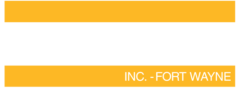Complete Guide to Industrial Epoxy Flooring
This guide breaks down the layers of information and options to consider before starting your flooring project.
Go into Your Industrial Flooring Project Informed
Preparing for an industrial flooring project can seem like a daunting task. As project manager, you will likely find yourself asking such questions as, what impact will this flooring project have on productivity? How much down time should I count on? What type of flooring is best for my facility? What should I allow for in terms of budget?
As always, Preferred is here to help. Read on for important factors to consider while planning your next industrial flooring installation project.
Part 1
Planning & Preparing for Your Flooring Project
With the exception of budget (more on that later) perhaps the most important aspect in preparing for an industrial flooring installation project is developing a plan to minimize disruptions to daily operations during the installation process. It will be necessary to close down areas of your facility to foot and equipment traffic to allow the floor to be prepared and conditioned as well as for coverings to be applied and to cure.
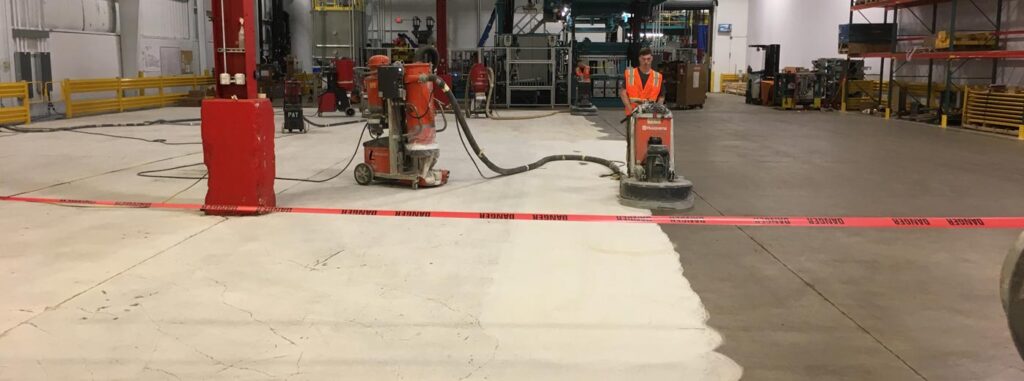
Planning Around Production Schedules
Ask the Right Questions About Your Project
Part 2
Selecting the Right Flooring Type for Your Facility
Preferred can install a number of different flooring types depending upon your operational needs. Common flooring options include:
Polished Concrete Floors
If day to day activity at your site consists of heavy foot and equipment traffic but chemical spills of any kind are unlikely to occur (such as at a typical warehouse or big box store), then a polished concrete floor would be an excellent choice.
Concrete polishing is a mechanical process in which abrasion (via a diamond grinder) is used first to grind concrete floors flat and then polish them to a desired sheen. The resulting surface is shiny, water resistant, and easily cleanable.
Polished concrete floors are easy to clean due to their non-porous nature and are also low maintenance as there is no surface coating that can chip, wear, or deteriorate. As an additional benefit, concrete polishing can be accomplished fairly quickly with most jobs wrapping up within three days depending upon the size of the facility.
Cementitious Urethane Mortar
Electrostatic Dissipative (ESD) Floor
Epoxy Overlayment Flooring
Thin Film Epoxy/Urethane Coatings
Aisle and Walkway Floor Markings
Get Tools and Tips From the Experts on Flooring Estimates
Part 3
Budgeting for your Flooring Project
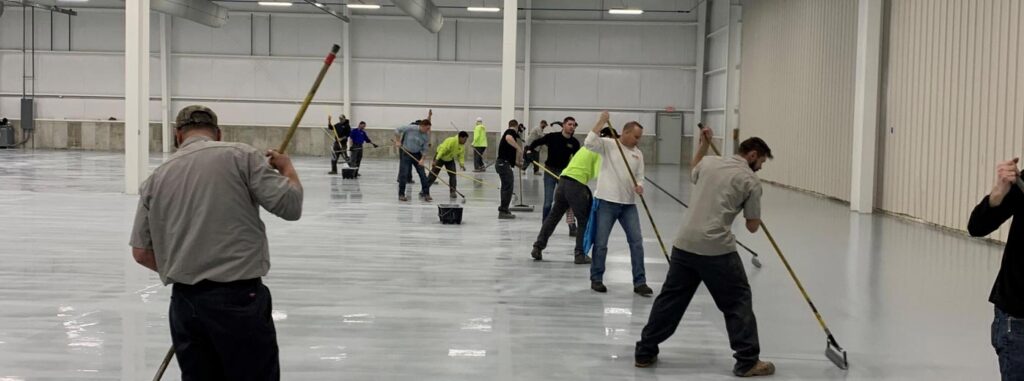
What to Consider When Budgeting for a Flooring Project
Determine your priorities
Industrial flooring projects can be costly endeavors. As such, it might be necessary to complete projects in phases over months or years. It is important to determine which areas of your facility are most in need of flooring installation and which areas can wait. Staggering a project in such a manner will also reduce disruptions to day to day operations.
Account for downtime
While we always do everything we can to limit the impact of a flooring project on your business, some downtime will be inevitable. The potential financial impact such pauses in operations will have on your bottom line should be factored into the budgeting process.
Plan your budget around your project
Don’t plan your project around your budget. While it can be tempting to set aside a finite dollar amount for a flooring installation project prior to contacting us, we strongly advise against this course of action. Locking into a rigid budget without first consulting preferred can result in an undesirable limitation of product options and project scope.
Talk to a Flooring Contractor First
Before committing to a project budget, we highly recommend you reach out to us for a free estimate. A member of our team will tour your facility and work with you to find a flooring solution that works for your organization at a price you can afford.
Ask the Right Questions About Your Project
Part 4
Surface Preparation & Cleaning
Surface preparation is arguably the most important part of any flooring project, so naturally Preferred takes special care during this part of the process. By incorporating methods such as sand blasting and diamond grinding, we first make sure the concrete subfloor is flat, free of dirt and oils, and properly scarified to allow optimal adhesion of floor covering products.
Once the surface has been cleaned properly, the first coat of floor covering will then be allowed to dry overnight. Preferred always takes care to sand between coats as this ensures proper intercoat adhesion. Watch as our team completes a floor installation at a local hangar.
Get Tools and Tips From the Experts on Flooring Estimates
Part 5
What to Expect While Your Flooring Project is in Progress
What Disruptions Should You Expect

Ask the Right Questions About Your Project
Part 6
Questions to Ask When Hiring a Qualified Flooring Contractor
Asking the Right Questions
- Can I see your work?
- Can I tour your shop?
- Can I see your D & B report?
- Is there a warranty on the flooring and your work?
- How long will the project take to complete?
Get Answers From the Experts on Flooring Estimates
Vetting Your Flooring Contractor
To make sure you are hiring a competent and qualified company, we recommend you:
- Don’t be afraid to ask a contractor who their previous clients were.
- Whenever possible tour the facilities to view such work first hand.
- Take note of how their work has held up over time and ask other project managers about their experience with a given contractor.
- You can tell a lot about a contractor when you visit their shop. Do they have the equipment and staff to complete the project?
- Be sure to check the company's financial stability before signing the contract.
Part 7
Auditing the Final Flooring Project
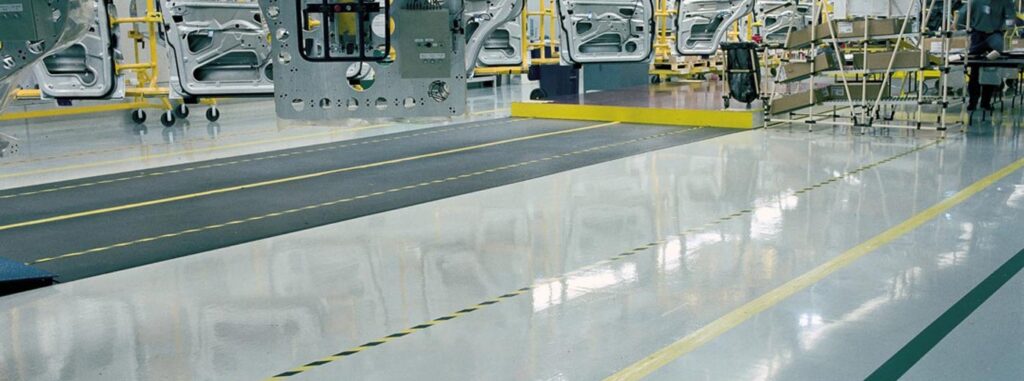
Ask the Right Questions About Your Project
Part 8
Flooring Care and Maintenance
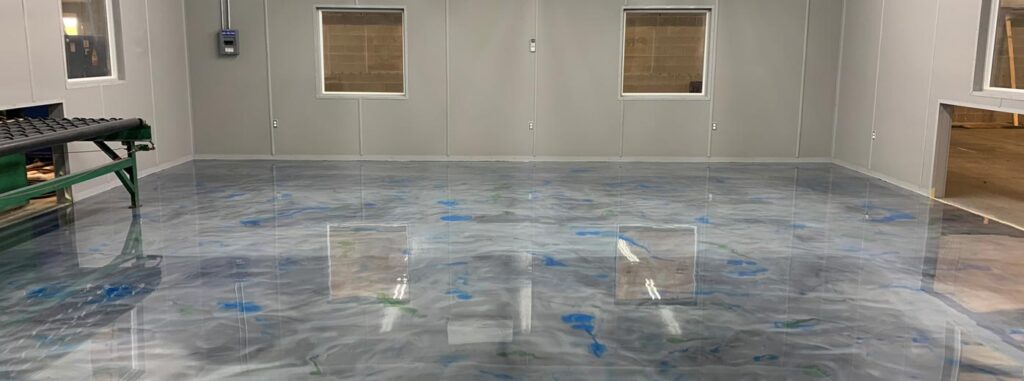
Cleaning Polished Concrete
Polished concrete floors should be regularly cleaned of dirt and debris and a quality sealer should be applied. Spills (especially of acidic and oily substances) should be cleaned immediately to prevent staining and discoloration.
Epoxy Floor Cleaning
Floors with epoxy and polyurethane finishes are more resistant to the effects of spills, but should still be subjected to a careful cleaning routine to minimize wear and maximize longevity.
Since proper care and maintenance is so critical, upon completion of a flooring installation project, we always leave our clients with a comprehensive guide detailing the proper maintenance routine specific to their chosen flooring type.
Ready to Get Started on Your Project?
Part 9
Ready to Get Started on Your Industrial Flooring Project?
If your floors are in need of a fresh new covering that will not only improve the appearance of your facility but improve worker safety and efficiency as well, don’t hesitate to contact us today.
Our experienced representatives will be happy to tour your location and provide a free estimate on the flooring solution that is right for you.
